The Walrus Was Steve Jobs And Other Fake Deaths

For a brief time last month the world thought Apple CEO Steve Jobs had died, following the mistaken publication of his obituary by the Bloomberg wire service. Bloomberg quickly retracted the 2,500 death notice, but bloggers and other media outlets had already picked it up and ran with the story, making for an entertaining news day at any rate.
Jobs' erroneous obituary was by no means the first such occurrence of its kind. In fact, such mistakes turn out to be fairly common, especially when it comes to celebrities like the Apple boss. Sometimes, as in the case of Jobs, an obituary kept on file by a media organization is accidently published, other times a sick individual is prematurely declared dead, in still other instances an actual death hoax is perpetrated.
Steve Jobs, thankfully, is still very much alive. His brush with the Great iPod Dock in the Sky, however, affords us the opportunity in the following pages to resurrect some forgotten fake deaths of the past.
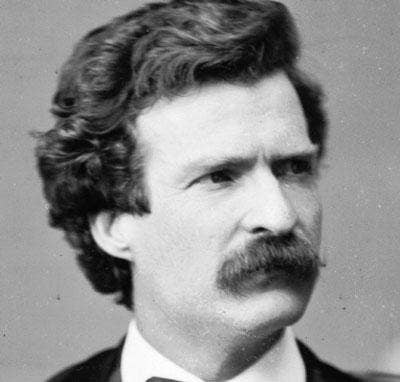
Novelist and American icon Mark Twain was declared dead before his time not once, but twice. On the first occasion, in 1897, a journalist mistook the news about Twain's ill cousin for news about the famous author. While no obituary was published, it was this incident that prompted Twain's famous quote, "The report of my death is an exaggeration," commonly misquoted as "The rumors of my death have been greatly exaggerated."
The second occasion was in 1907, when Twain's yacht went missing at sea. The New York Times published his obituary on May 4 of that year, later it turned out Twain had disembarked from the yacht due to foggy conditions.
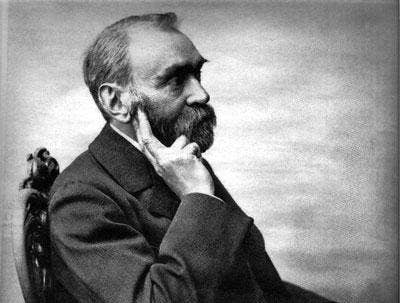
Alfred Nobel was declared dead by several newspapers in 1888. Apparently, the passing of his brother Ludvig was the cause of the error. Nobel at the time was known principally as an arms manufacturer, prompting one French newspaper to state "Le marchand de la mort est mort" ("The merchant of death is dead.") Some believe Nobel went on to found the prize named after him due to the wake-up call he received from such obituaries. Meanwhile, actual Nobel Prize winners who have also been falsely declared dead include Bertrand Russell, Nelson Mandela and Harold Pinter.

Perhaps the most famous urban legend death is Paul McCartney's. Somehow, the Beatles star became the subject of a bizarre myth that stated he'd died in 1966 and been replaced by a look-alike, sound-alike double. Supposedly, an assortment of "clues" on Beatles albums revealed the truth of McCartney's demise. But Paul remains very much alive, while sadly, band mates John Lennon and George Harrison both died prematurely.
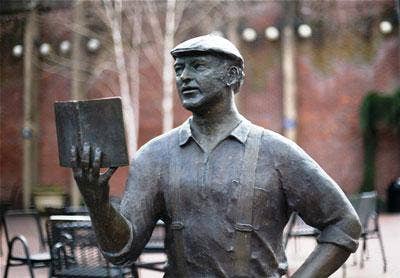
Faking one's death is an American literary tradition, dating at least to the fictional fake deaths of Tom Sawyer and his pals in Mark Twain's famous novel. But just writing about such shenanigans wasn't enough for "One Flew Over the Cuckoo's Nest" author Ken Kesey, who apparently faked his own death in 1966 to dodge drug charges. Kesey, goes the story, absconded to Mexico while his friends left a suicide note in his abandoned truck on a cliffside road in California. Kesey was arrested and jailed for five months when he returned to the United States.
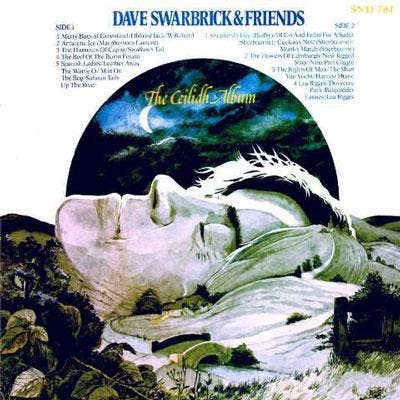
Dave Swarbrick was very ill when the Daily Telegraph published his obituary in 1999, but the British folk musician survived his chest infection, eventually receiving a double lung transplant in 2004 due to emphysema. The location of the hospital Swarbrick was laid up in at the time of the premature death notice prompted his famous quip, "It's not the first time I have died in Coventry."

Given the number of musicians who have really died in plane crashes, it's not too surprising that someone would falsely report that a deadly air disaster had claimed the lives of yet another rock band. That's what happened in 1976, when a German newspaper mistakenly reported that the Swedish disco quartet Abba had been all but eliminated in an airplane crash, with only a supposedly disfigured Anni-Frid Lyngstad surviving.
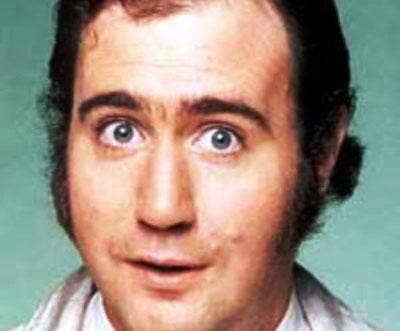
Comedian Andy Kaufman almost certainly did die of cancer on May 16, 1984, but like Elvis Presley and Bruce Lee, persistent rumors that he's still alive endure to this day. Unlike Presley and Lee, however, Kaufman did a great deal to foster those rumors while he was still alive, telling several people about his thoughts about faking his own death. Kaufman's relationship with his friend and comedy conspirator Bob Zmuda is depicted in the 1999 film "Man on the Moon," which leaves open the question of whether Kaufman's death was a hoax or real. Zmuda himself has stated that he believes Kaufman is dead.
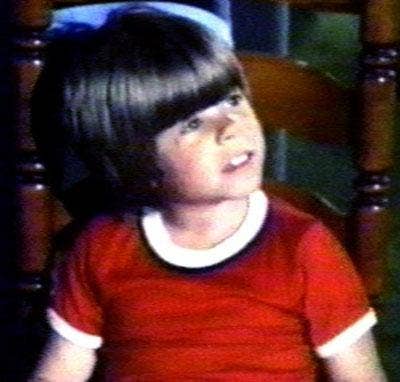
The idea that former child star Adam Rich had died tragically didn't seem so far-fetched when Rich and Might Magazine conspired to perpetrate the hoax in 1996. Rich, who played youngest sibling Nicholas on the 1980s television drama "Eight is Enough," was supposed to have been killed by an "unemployed dinner theater stagehand" in a robbery gone terribly wrong. Might Magazine founder Dave Eggers wrote semi-seriously about the big joke in his novel, "A Heartbreaking Work of Staggering Genius."
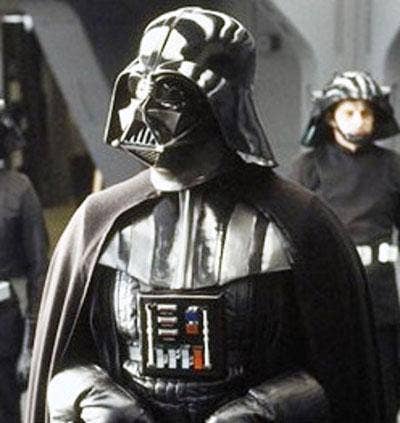
Award-winning actor James Earl Jones was mistakenly pronounced dead in 1998 during a radio broadcast of a major league baseball game when the play-by-play announcer confused him with the killer of Martin Luther King assassin James Earl Ray, who had just died. The African-American actor, known by sci-fans the world over as the voice of Darth Vader, was understandably less than amused.
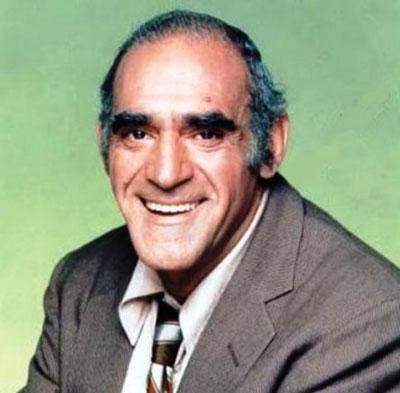
Character actor Abe Vigoda's death has become a running joke in certain corners of the Internet and in comedy routines, due in part to Vigoda's corpse-like appearance, but also because of a 1982 People magazine feature that showed "the late Abe Vigoda" sitting in a coffin. This urban legend was most popular in the 1980s, a period in which Vigoda, most famous for his roles as Sal Tesio in "The Godfather" and as Det. Sgt. Fish on the television series "Barney Miller," claims all the jokes about his death cost him work as an actor.
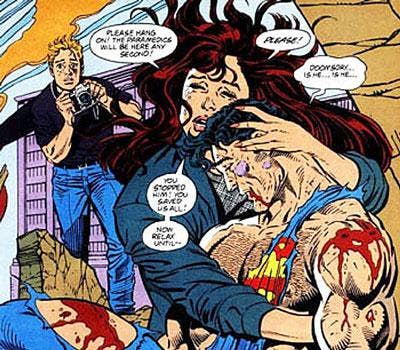
Comic characters "die" and are later discovered to be alive regularly, but DC Comics' 1992 story arc "The Death of Superman" remains arguably the pinnacle of the form. Superman, who of course has since been brought back to life, was killed off by a giant robot called Doomsday on the streets of Metropolis, expiring in the arms of his lifelong love Lois Lane.
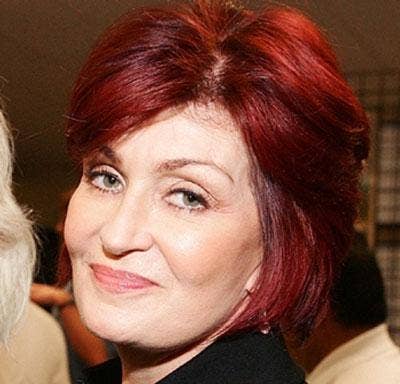
As happened this week with Steve Jobs, Sharon Osbourne's obituary was accidently published prematurely. The wife of rocker Ozzy Osbourne and co-star with her husband and children in MTV reality series "The Osbournes" had her death notice erroneously published in October 2004 by ABC News on its Web site.

Dick Cheney, pictured left, was one of several famous names crossed off the life list on CNN's Web site on April 16, 2003. In addition to the US vice president's, obituaries for Fidel Castro, Nelson Mandela, Bob Hope, Gerald Ford, Pope John Paul II and Ronald Reagan appeared on the CNN site. All but Cheney, Castro and Mandela have actually died since the screw-up. Hilariously, CNN's obituary template was apparently based on the life of Britain's Queen Mum, which led to Cheney being described as the "UK's favorite grandmother."

Hank Hill of the animated TV sitcom "King of the Hill" gets the Paul McCartney urban legend treatment in an extended version of the show's theme song. At the end of the song, following several seconds of silence, the Dale Gribble character says, "Hank is a dead man. Miss him, miss him."